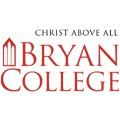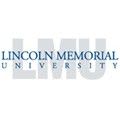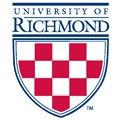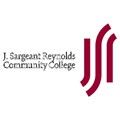Best Virginia Colleges & Universities

Virginia's economy is increasing rapidly, and this growth is creating demand for the higher education system. Areas such as computer technology, accounting and allied health are expected to need more graduates, and students interested in one of these fields or a closely related subject will likely be warmly welcomed into Virginia's colleges, universities and two-year institutions. Virginia students can choose from numerous schools in the state, but the task of selecting a school can seem overwhelming. This guide aims to help with the process. We looked at factors that matter to college students, such as tuition rates, financial aid availability, graduation rates and alumni salaries. We also looked at cost of living, college resources and college planning tools to help give students an overview of what to typically expect from Virginia schools.
Best Virginia Colleges: Rankings
When it comes to choosing the best school, some questions always come to mind: What is the tuition? What is the student-to-faculty ratio? What is the graduation rate? These questions and more have led to our comprehensive rankings list, where we looked at a variety of factors that matter most and compared schools to come up with the best Virginia colleges.
Rankings Methodology
- Located in Virginia
- Public or private not-for-profit
- Institutionally accredited
- At least 10 total programs
- Median annual alumni earnings 10 years after entering the college
- In-state tuition and fees for undergraduates
- Student/teacher ratio
- 6-year graduation rate
- % of students receiving institutional financial aid (first-time, full-time undergrads)
- Average amount of institutional aid awarded per student (first-time, full-time undergrads)
- Availability of placement services upon completion
- Availability of academic/career counseling services
- Availability of employment services
- 3-year student cohort loan default rate
Integrated Postsecondary Education Data System (IPEDS): National Center for Education Statistics
Latest 'Final Release' data available as of Fall 2016 College Scorecard: U.S. Department of Education
2-Year Programs
Tidewater Community College
Lord Fairfax Community College
Southwest Virginia Community College
Danville Community College
Central Virginia Community College
Reynolds Community College
Blue Ridge Community College
Piedmont Virginia Community College
Northern Virginia Community College
Eastern Shore Community College
Virginia Western Community College
New River Community College
Mountain Empire Community College
Thomas Nelson Community College
John Tyler Community College
Virginia Highlands Community College
Wytheville Community College
Southside Virginia Community College
Germanna Community College
Patrick Henry Community College
Dabney S Lancaster Community College
Rappahannock Community College
Paul D Camp Community College
4-Year Programs
University of Richmond
University of Virginia-Main Campus
Virginia Military Institute
Washington and Lee University
Hampton University
College of William and Mary
Virginia Polytechnic Institute and State University
George Mason University
James Madison University
Hampden-Sydney College
Sweet Briar College
Averett University
Marymount University
Lynchburg College
Roanoke College
Randolph-Macon College
Emory & Henry College
Jefferson College of Health Sciences
University of Mary Washington
Eastern Mennonite University
Bridgewater College
Mary Baldwin College
Randolph College
Old Dominion University
Shenandoah University
Bluefield College
Hollins University
Virginia Commonwealth University
Radford University
Christopher Newport University
Virginia Wesleyan College
The University of Virginia’s College at Wise
Virginia State University
Longwood University
Regent University
Liberty University
Norfolk State University
Ferrum College
Southern Virginia University
Virginia Union University
Virginia College Search & Compare Tool
After prospective college students have reviewed the rankings list, they may want to consider factors that are tailored to their individual needs and goals. By placing schools side by side and directly comparing them based on characteristics like location and student enrollment, users can more effectively decide which Virginia school is more advantageous than another.
College Outreach Programs in Virginia
Getting to college is not typically easy. In order to help make the process less complicated, Virginia offers several programs to provide guidance and information to hopeful college students, including students who may be at a disadvantage in the college planning and application process. The following is a list of state programs that may be of interest to prospective college students.
GEAR Up VirginiaThis state program helps low-income and homeless students get to college and succeed once there. Starting in middle school and continuing through the first year of college, students will receive college preparatory services and skill development assistance in the form of mentoring, college visits, tutoring, financial aid guidance and summer programs. There is also a GEAR UP scholarship to help pay for college as well as graduate resources for job seekers.
I Am The OneThis is an information resource for prospective college students, their families and school guidance counselors. There are three primary categories of assistance, including financial aid guidance, college preparation, and career and academic planning. From help with standardized tests to information tailored to student athletes, there is a wealth of advice for those who want to attend college. There is even a section dedicated to helping middle school students anticipate their college and career goals.
123Go!Recognizing the difficulties many prospective Virginia college students face, 123Go! consists of three events to help students prepare for college. The first is College Nights in Virginia, an information session about things prospective college students should know. The second is Virginia College Application Week, where volunteers and counselors help first-generation college and low-income students fill out their college applications. The final event is Super FAFSA Project Virginia, where students will receive guidance on filling out their FAFSA application.
Cost of College in Virginia: How Does It Stack Up?
How much will school actually cost? Students at Virginia colleges can anticipate a certain amount of tuition set each year by the school. However, financial aid packages offset a great deal of that expense. How much those financial aid packages are and how many students receive them can help aspiring students figure out where Virginia stands compared to the national cost of college. The following charts examine tuition, financial aid and the percentage of students who qualify for it.
* Institutional aid represents grant and scholarship funds directly awarded by a postsecondary institution.
* Financial aid data represents 4-year public and private nonprofit schools only.
Most Affordable Virginia Colleges
The net price of a given college is the figure after applicable financial aid is subtracted from tuition. Since many students receive financial aid assistance in some form, the tuition rate of a school alone rarely provides an accurate representation of how much a school costs. The net price gives a much better idea of the cost a student might have to pay out of pocket after all financial aid options are exhausted. These six schools are the top in Virginia for the lowest net price.
- 1.
 Hiwassee College
Hiwassee College
$11,500 - 2.
 Vanderbilt University
Vanderbilt University
$13,750 - 3.
 Tennessee Technological University
Tennessee Technological University
$15,625
- 4.
 Trevecca Nazarene University
Trevecca Nazarene University
$18,750 - 5.
 Bryan College-Dayton
Bryan College-Dayton
$18,750 - 6.
 Lincoln Memorial University
Lincoln Memorial University
$18,832
Tennessee College Grad Debt Vs. National Average
Median Federal Student
Loan Debt After Graduation
Source: College Scorecard
Note: Rankings/data represent 4-year public and private nonprofit schools only.
Virginia Colleges with Highest Alumni Earnings
A major reason students go to college is to potentially increase their future earnings. To figure out which Virginia colleges offer the greatest earning potential, we looked at how much alumni make ten years after college enrollment. These are the top six Virginia schools with the highest-paid alumni.
- 1.
 Hiwassee College
Hiwassee College
$11,500 - 2.
 Vanderbilt University
Vanderbilt University
$13,750 - 3.
 Tennessee Technological University
Tennessee Technological University
$15,625
- 4.
 Trevecca Nazarene University
Trevecca Nazarene University
$18,750 - 5.
 Bryan College-Dayton
Bryan College-Dayton
$18,750 - 6.
 Lincoln Memorial University
Lincoln Memorial University
$18,832
Tennessee College Grad Debt Vs. National Average
Median Federal Student
Loan Debt After Graduation
Source: College Scorecard
Note: Rankings/data represent 4-year public and private nonprofit schools only.
Colleges in Virginia With Least Alumni Debt
Another way of calculating cost of attendance is to look at the average debt of a graduate of a particular school. In most cases, students who receive larger financial aid awards from their school of choice will need to take out fewer student loans. The following rankings display the top six schools in Virginia that produce graduates with the lowest student debt and compare them to the national average.
- 1.
 Hiwassee College
Hiwassee College
$11,500 - 2.
 Vanderbilt University
Vanderbilt University
$13,750 - 3.
 Tennessee Technological University
Tennessee Technological University
$15,625
- 4.
 Trevecca Nazarene University
Trevecca Nazarene University
$18,750 - 5.
 Bryan College-Dayton
Bryan College-Dayton
$18,750 - 6.
 Lincoln Memorial University
Lincoln Memorial University
$18,832
Tennessee College Grad Debt Vs. National Average
Median Federal Student
Loan Debt After Graduation
Source: College Scorecard
Note: Rankings/data represent 4-year public and private nonprofit schools only.
Virginia Cost of Living: College Expenses Beyond Tuition
Prospective students should also consider the cost of living in the area a desired school is located. An area that has a higher cost of living than the national average can easily offset any tuition savings or financial aid awards. Even though the average cost of living in Virginia is about 8 percent higher than the national average, not all parts of the state have the same cost of living. The following chart provides more detailed information about specific metropolitan areas in Virginia.
| area | composite index | housing | groceries | utilities | transportation | health care | misc. |
|---|---|---|---|---|---|---|---|
| Statewide Average | 92% | 87% | 92% | 99% | 90% | 97% | 95% |
| Hampton Roads-SE Virginia | 98% | 88% | 91% | 102% | 95% | 107% | 106% |
| Harrisonburg | 97% | 99% | 94% | 103% | 87% | 105% | 96% |
| Lynchburg | 91% | 84% | 90% | 100% | 86% | 95% | 95% |
| Richmond | 81% | 70% | 91% | 79% | 90% | 81% | 83% |
| Roanoke | 90% | 88% | 90% | 100% | 86% | 95% | 89% |
Source: The Council for Community and Economic Research
Accrediting Agencies for Colleges in Virginia
Accreditation is a very important part of choosing the right school. Accreditation certifies that the education provided by a particular college meets certain high quality educational standards. Choosing an accredited school usually provides the student with valuable instruction, credits that will transfer and a degree that will be recognized by graduate schools and employers.
In Virginia, the Southern Association of Colleges and Schools Commission on Colleges accredits schools at the institutional level. Depending on a college's specific course offerings, individual programs can be accredited as well. Below are a few examples.
- The Landscape Architectural Accreditation Board accredits certain programs within the school of architecture at University of Virginia.
- The American Bar Association accredits the school of law at the University of Richmond.
Major College Cities in Virginia
Charlottesville
One of Charlottesville's most notable features is the University of Virginia, one of the highest ranked schools in the United States. However, its students know how to enjoy themselves when not studying by visiting The Corner, a center for college socializing outside of class. Though it has a heavy influence, the University of Virginia is not the only school in Charlottesville. Many higher education options are available within a short drive of the city center.
| College Name | School Type | Annual Net Price | Annual Median Earnings 10 Years After College Only includes former students who received federal financial aid. |
|---|---|---|---|
 University of Virginia University of Virginia |
Public | $17,149 | $58,600 |
| Founded by Thomas Jefferson in 1819, UVA enjoys the prestige of being one of the most well-regarded universities in the country. UVA has over 21,000 students who study in areas such as law, business, education, architecture, kinesiology and mechanical engineering. The University of Virginia is well known for its Health System, which provides outstanding medical care, research and education to students, patients and the world community. | |||
 Piedmont Virginia Community College Piedmont Virginia Community College |
Public | $7,541 | $29,400 |
| PVCC is one of 23 schools that make up the Virginia Community College System. This one focuses on serving students in central Virginia. Since its inception, PVCC has served an estimated 213,000 students by providing education and skills training in areas such as computer science, medical diagnostic sonography, graphic design and surgical technology. PVCC also serves as a feeder school, sending more than 2,400 students to the University of Virginia through its transfer program. | |||
Richmond
Although Richmond has all the trappings of a modern city, it holds onto the past by preserving historical neighborhoods and maintaining historical attractions. As a result, students who attend any one of the several colleges and universities in Richmond enjoy a pleasant mesh of modern day living and historical reminiscing.
| College Name | School Type | Annual Net Price | Annual Median Earnings 10 Years After College Only includes former students who received federal financial aid. |
|---|---|---|---|
 Virginia Commonwealth University Virginia Commonwealth University |
Public | $18,354 | $41,800 |
| Established in 1838, Virginia Commonwealth University is a relatively large school with over 31,000 students. VCU offers over 225 study options, many of which are typical for a major university. However, some of the more unique programs include clinical radiation sciences, homeland security and emergency preparedness, kinetic imaging, and venture creation. The university especially shines with its medical and graduate arts program, having the number one hospital in Virginia and the number one graduate arts program in the country. | |||
 University of Richmond University of Richmond |
Private not-for-profit | $24,505 | $60,800 |
| Founded in 1830 as a private liberal arts school, the university now offers over 60 majors. The school pays special attention to its students with an average class size of 16 and an 8-to-1 student-to-faculty ratio; in fact, the university doesn't have a single class taught by a teaching assistant. Students will also appreciate the "Richmond Guarantee," where every undergraduate student is eligible to receive a fellowship of up to $4,000 for a research project or summer internship. | |||
 Reynolds Community College Reynolds Community College |
Public | $7,307 | $30,800 |
| Although RCC is the newest of Virginia's community college, having started in 1972, it is the third largest, with more than 20,000 students served over three campuses. The college offers a variety of programs and credentials, including automotive technology, culinary arts, cyber security, accounting and nursing. One of the more notable programs is its transfer associate degree, where students can begin the first two years of a bachelor's degree before transferring to a four-year college or university. | |||
Source: College Scorecard
College Resources for Students in Virginia
Many students can use additional help to make the most of their higher education. The following is a list of programs and resources to help Virginia's college students accomplish their academic and professional goals.
The CICV represents the nonprofit, private and accredited colleges and universities in Virginia. CICV promotes private and independent higher education in Virginia by supporting both the schools and their students.
Elevate VirginiaThis statewide initiative ensures that Virginia has the skilled workers it needs to fulfill the complex jobs springing up in the new economy.
State Council of Higher Education for Virginia (SCHEV)The SCHEV promotes higher education in Virginia. In addition to working on higher education policy, the SCHEV provides college resources for prospective college students.
Virginia 529 College Savings PlanRun by VA529, an independent state agency, a 529 college savings plan is an investment vehicle that can receive certain tax benefits, like tax deferred growth.
Virginia's Community CollegesThese colleges exist to help students achieve necessary workforce training and college educational instruction. Virginia's Community Colleges's website helps guide students through the application, enrollment and attendance processes for community college.
Virginia Education WizardThe Wizard is an online tool to help students of all ages learn more about themselves and determine what their academic and professionals goals are.
LearnHowToBecome.com is an advertising-supported site. Featured or trusted partner programs and all school search, finder, or match results are for schools that compensate us. This compensation does not influence our school rankings, resource guides, or other editorially-independent information published on this site.
View the most relevant programs for your interests and compare them by tuition, acceptance rate, and other factors important to you.